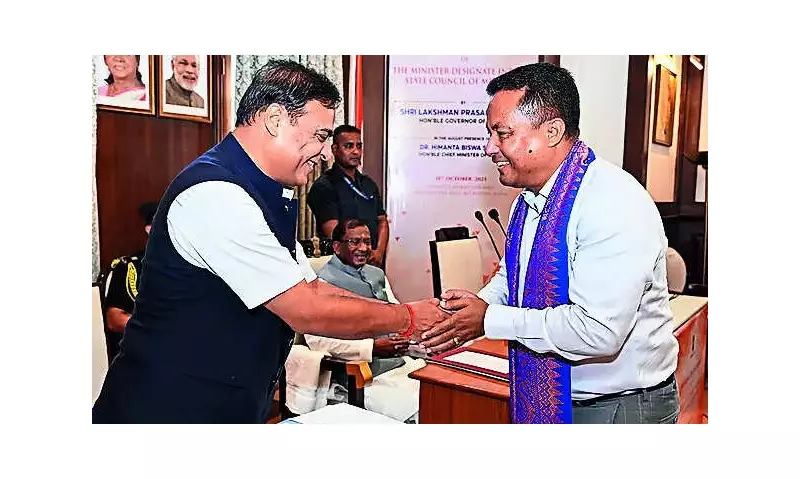
In a dramatic political maneuver that could redefine Assam's electoral dynamics, Charan Boro, the prominent leader from the Bodoland People's Front (BPF), has officially joined the Bharatiya Janata Party-led state government. This strategic move comes at a crucial juncture as political parties prepare for upcoming state elections.
A Strategic Political Appointment
Chief Minister Himanta Biswa Sarma announced the induction of Charan Boro as a Cabinet Minister, with additional responsibilities as Deputy Chief Minister. This appointment marks a significant consolidation of the BJP's position in the strategically important Bodoland region, known for its substantial influence in determining electoral outcomes.
The timing of this political shift is particularly noteworthy, as it occurs when various political factions are repositioning themselves ahead of potential electoral battles. Boro's entry into the ruling coalition is expected to strengthen the BJP's outreach among tribal communities and potentially weaken opposition alliances in the region.
Reshaping Political Equations
This development represents more than just a cabinet reshuffle—it signals a potential realignment of political forces in Assam. The BPF, which previously enjoyed a dominant position in Bodoland politics, has been experiencing internal challenges and electoral setbacks in recent years.
Political analysts suggest that Boro's decision to join the BJP-led government could have far-reaching implications:
- Strengthen the ruling coalition's presence in tribal-dominated areas
- Potentially split opposition votes in crucial constituencies
- Provide the BJP with additional leverage in future government formations
- Alter the calculus for opposition parties planning electoral strategies
Broader Implications for Assam Politics
The inclusion of Charan Boro in the state cabinet is seen as part of Chief Minister Sarma's broader strategy to expand the BJP's social and political base across diverse communities in Assam. This move follows similar efforts to incorporate leaders from various regional parties into the ruling coalition.
This political realignment comes at a time when the opposition Congress and other regional parties have been attempting to forge a united front against the ruling BJP. Boro's shift to the government side could complicate these efforts and potentially force opposition parties to reconsider their electoral strategies.
The development underscores the fluid nature of Assam's political landscape, where alliances and loyalties often shift in response to changing political circumstances and strategic considerations.





